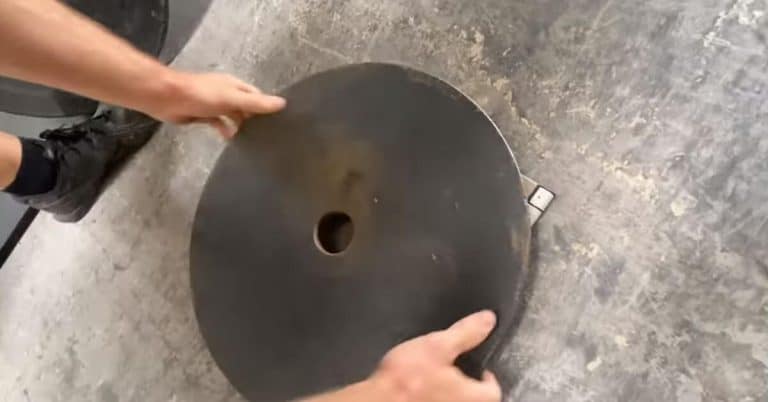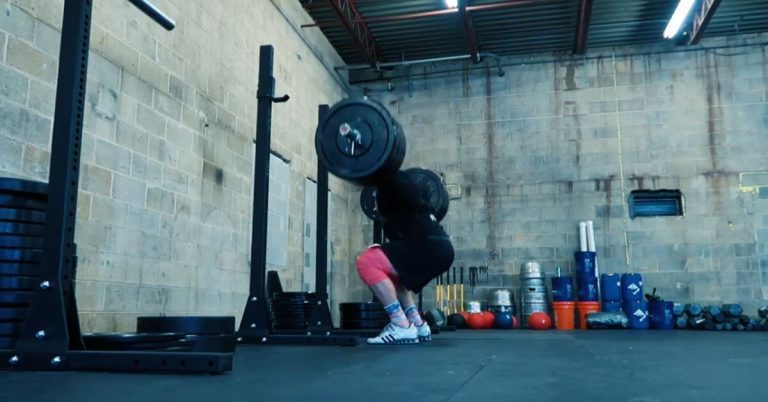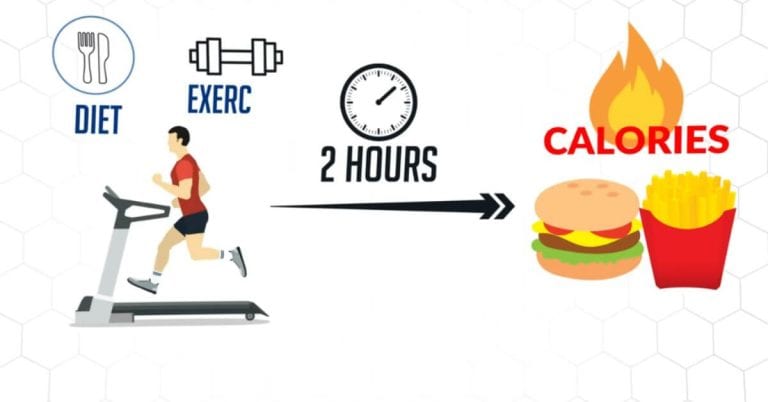Does Creatine Make You Constipated? The Truth Unveiled
Last Updated on November 5, 2023 by Justin Harris
Does Creatine Make You Constipated: Creatine does not cause constipation when taken according to recommended dosages and loading guidelines. It is important to follow these guidelines to avoid digestive issues.
Understanding The Relationship Between Creatine And Digestive Issues
Taking creatine does not typically cause constipation if proper dosages and loading guidelines are followed. However, some individuals may experience constipation as a side effect. It is important to stay hydrated and adjust your water intake while taking creatine to avoid digestive issues.

Creatine: Side Effects And Interactions
When it comes to the relationship between creatine and digestive issues, it is important to note that creatin does not increase digestive issues when the recommended dosages and loading guidelines are followed.
While some side effects, like constipation, can happen when taking creatine, they are usually not too bad and won’t happen to everyone. Creatine draws water into muscle cells, which may result in slower dissolution in cold water. Therefore, it is recommended to take creatine with a glass of warm water.
| Common Side Effects of Creatine | Why Do Some People Experience Digestive Issues with Creatine? |
|---|---|
| Dehydration | Creatine draws water into muscle cells, which may affect the hydration levels in other parts of the body. |
| Upset Stomach | Some individuals may experience stomach discomfort or upset when taking creatine supplements. |
| Muscle Cramps | In rare cases, creatine intake may lead to muscle cramps. Ensuring proper hydration and following recommended dosages can help mitigate this side effect. |
It is worth mentioning that creatine constipation is rare, but it can still occur as a side effect. This emphasizes the importance of maintaining a balanced diet and ensuring adequate water intake while using creatine supplements. As with any dietary supplement, it is recommended to consult with a healthcare professional before starting creatine supplementation.
Debunking The Myth: Creatine And Constipation
In this blog post, we will explore the link between creatine and constipation, clarifying any misconceptions and addressing scientific studies supporting or contradicting this claim.
Exploring The Link Between Creatine And Constipation
It is often suggested that creatine may cause digestive issues, including constipation, but there is no substantial scientific evidence supporting this claim. While individual experiences vary, following recommended dosages and loading guidelines can help minimize any potential side effects of creatine supplementation.
Creatine is known to have numerous benefits, such as increased muscle strength and improved exercise performance. However, it is important to note that like any supplement, creatine may affect individuals differently.
Some studies suggest that constipation may be a possible side effect of creatine consumption, but it is relatively rare. The digestive side effects of creatine, including constipation or diarrhea, typically depend on an individual’s underlying gut health and diet.
| Source | Summary |
|---|---|
| Healthline | Creatine does not increase digestive issues when recommended dosages and loading guidelines are followed. |
| TGFFitness | Constipation may occur in some individuals, but it is not a common or severe side effect. |
| Home Gym Strength | While diarrhea is a common side effect, constipation can also be experienced by some people. |
| Total Shape | Bloating and constipation may occur with high doses of creatine, but proper hydration can help prevent these issues. |
| Reddit – r/Fitness | Creatine can cause constipation due to water being drawn into muscle cells. Drinking more water can offset this effect. |
| Max Health Living | Constipation or diarrhea can occur depending on an individual’s gut health and diet. |
| Rebenly | Creatine constipation is rare, but it is a side effect that should not be overlooked. |
| Garage Gym Pro | Creatine can cause constipation, especially if water intake is insufficient. |
| Healthline | Creatine bloating and constipation are possible side effects, which can be avoided with proper hydration. |
| WebMD | Creatine may cause upset stomach and muscle cramps but does not have a direct link to constipation. |
Overall, it is important to remember that individual responses to creatine supplementation may vary. If you experience any severe or persistent digestive issues, it’s advisable to consult a healthcare professional.
Factors That Influence Digestive Issues With Creatine
Creatine does not increase digestive issues like constipation when taken at recommended dosages and following loading guidelines. However, some individuals may experience constipation or other side effects, which can be mitigated by staying well-hydrated and maintaining a balanced diet.
Proper Dosage and Loading Guidelines for CreatineCreatine does not increase digestive issues when the recommended dosages and loading guidelines are followed. Some side effects, like constipation, can happen when you take creatine, but they are usually not too bad and won’t happen to everyone. It is important to stay properly hydrated when taking creatine as it can cause dehydration-related digestive issues. Individual variations and susceptibility can also play a role in whether someone experiences digestive issues with creatine. Diarrhea is one of the most common side effects, but constipation can also be experienced by some people.To avoid digestive issues, it is recommended to drink plenty of water and follow the proper dosage instructions. Overall, while digestive issues can occur with creatine, they are typically mild and can be managed with proper hydration and dosage. |
Tips For Avoiding Digestive Issues When Taking Creatine
While taking creatine, some individuals may experience digestive issues such as constipation. However, it is important to note that these side effects are not universal and can vary from person to person. To minimize the risk of constipation, there are several strategies that can be implemented:
- Incorporating Adequate Hydration Strategies: Ensure that you are consuming enough water throughout the day. Creatine can draw water into the muscles, potentially leading to constipation. Staying well-hydrated can help prevent this issue.
- Balancing Creatine Intake with Dietary Fiber: Including sufficient amounts of dietary fiber in your diet can promote regular bowel movements and prevent constipation while taking creatine.
- Ensuring a Well-Rounded Nutritional Approach: Maintaining a balanced diet that includes a variety of fruits, vegetables, whole grains, and other nutrient-dense foods can support healthy digestion and minimize the risk of constipation.
It is always recommended to consult with a healthcare professional or registered dietitian before starting any new supplement regimen to ensure it is appropriate for your individual needs.
Read Also,
- Why Does Creatine Taste So Bad? Unveiling the Bitter Truth
- Why Does Creatine Make Me Nauseous: Unraveling the Mystery
- Why Does Creatine Powder Jump? Unveiling the Phenomenon
- Why Doesn’t Creatine Dissolve? Find the Solution Now!
- How Long Does Creatine Last in Water: Uncovering the Secrets
- Does Creatine Make Your Balls Smaller? The Shocking Truth Revealed
- Does Creatine Make You Fart? Find Out the Truth!
- Does Creatine Shrink Your Balls? Debunking the Myth
The Bottom Line: Creatine And Digestive Health
When it comes to digestive health and creatine
supplementation, it is important to follow the recommended dosages and guidelines. While some individuals may experience side effects such as constipation, these issues are typically mild and not experienced by everyone. To maintain digestive health while taking creatine, consider the following:
- Stay hydrated: Drink plenty of water to help mitigate potential digestive issues.
- Follow proper dosages: Adhere to the recommended dosages to avoid unpleasant side effects.
- Eat a balanced diet: Ensure you are consuming a nutrient-rich diet to support overall digestive health.
- Listen to your body: If you experience any digestive discomfort, adjust your creatine intake or seek guidance from a healthcare professional.
It’s important to note that while constipation may be a potential side effect of creatine supplementation, it is not a common occurrence and can typically be managed through proper hydration and dosage. As always, consult with a healthcare professional before starting any new supplement regimen.
Conclusion
To sum it up, while there is a possibility that creatine can cause digestive issues like constipation, it is not a common occurrence and usually happens when high doses are taken or when water intake is insufficient. By following recommended dosages and staying hydrated, the likelihood of experiencing constipation from creatine supplements is minimized.
Overall, the benefits of creatine for muscle growth and athletic performance outweigh the potential side effect of constipation.






